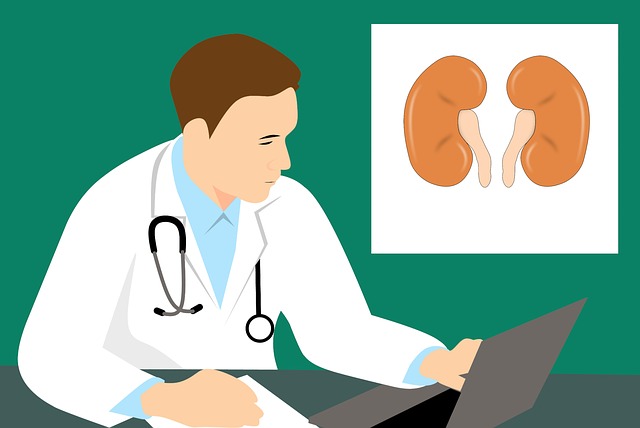Prostatitis and Kidney Deficiency: Know Your Risks
Date:2022-08-01 click:0
Kidney deficiency and prostatitis are diseases that many people know about, so what is the relationship between the two? Patients with little knowledge of the disease often equate prostatitis with kidney deficiency and blindly take kidney-tonifying drugs, resulting in worsening the condition rather than improving.

Kidney deficiency belongs to the concept of traditional Chinese medicine and is generally manifested as soreness and weakness of the waist and knees, chills in the limbs, fever in the palms and feet, heartburn, restlessness, prolonged urination, constant dripping, nocturnal emission, premature ejaculation or impotence, and other clinical symptoms.
Prostatitis belongs to the concept of Western medicine, which refers to the inflammation of the prostate gland. The clinical symptoms often manifested are frequent urination, urgency, dysuria, incomplete urination, bifurcation of urine, waiting for urination, lower abdomen or perineal pain and discomfort, etc.
Kidney deficiency is not prostatitis, and kidney deficiency and prostatitis are mostly concurrent. Long-term unhealed prostatitis can cause kidney deficiency. Kidney deficiency, liver stagnation, blood stasis, damp heat, and qi stagnation are all causes of prostatitis. Many men with kidney deficiency have normal prostate examinations, while some patients with prostatitis have no kidney deficiency disease. Therefore, the relationship between kidney deficiency and prostatitis is a relationship of mutual influence rather than an inevitable causal relationship.
Kidney deficiency and prostatitis are related to each other. That is to say, and kidney deficiency can cause prostatitis, which can also lead to kidney deficiency. There are many causes of prostatitis, such as kidney deficiency, damp-heat in the lower energizer, qi stagnation and blood stasis, or liver stagnation, all of which can lead to prostatitis. If prostatitis does not heal for a long time, it will also lead to kidney deficiency. Patients with prostatitis will have symptoms such as waist and knee pain, mental fatigue, dizziness, insomnia, nocturnal emission, and premature ejaculation, which are manifestations of kidney deficiency.
Prostatitis may aggravate the clinical symptoms of kidney deficiency. In turn, kidney deficiency may exacerbate the clinical signs of prostatitis. Whether it is kidney deficiency caused by prostatitis or prostatitis caused by kidney deficiency, the treatment must fully consider the condition to achieve good results.
Therefore, both prostatitis and kidney deficiency need to be treated. Kidney deficiency and prostatitis need to be treated separately. Kidney deficiency is generally recommended to be conditioned by traditional Chinese medicine, and prostatitis is generally recommended to be treated by Western medicine and proprietary Chinese medicine.
Prostatitis patients are suggested to be treated by drug therapy and physical therapy, and the more commonly used drugs include levofloxacin, cefdinir, etc. Physical therapy such as hot sitz baths can effectively improve the symptoms of prostatitis patients, and local massage can be used for adjuvant therapy to improve blood circulation in the prostate tissue, thereby relieving adverse symptoms such as edema and pain.
To treat recurrent prostatitis, patients can take Diuretic and Anti-inflammatory Pill, which can clear heat and detoxify, promote blood circulation and relieve pain, relieve stranguria, quickly eliminate symptoms of prostatitis, relieve abnormal urination, and restore prostate health! If it is prostatitis caused by kidney deficiency, the treatment of prostatitis is often inseparable from kidney-tonifying. While Diuretic and Anti-inflammatory Pill is used to treat prostatitis, it also has healthcare effects and is good for kidney-tonifying. It can improve the patient's symptoms and allow him to recover sooner.
It is recommended that patients with prostatitis and kidney deficiency should pay attention to a light diet. They can increase nutrition, exercise correctly, and do more aerobic exercise, improving the clinical symptoms of these two diseases.
Recommended Readings:



